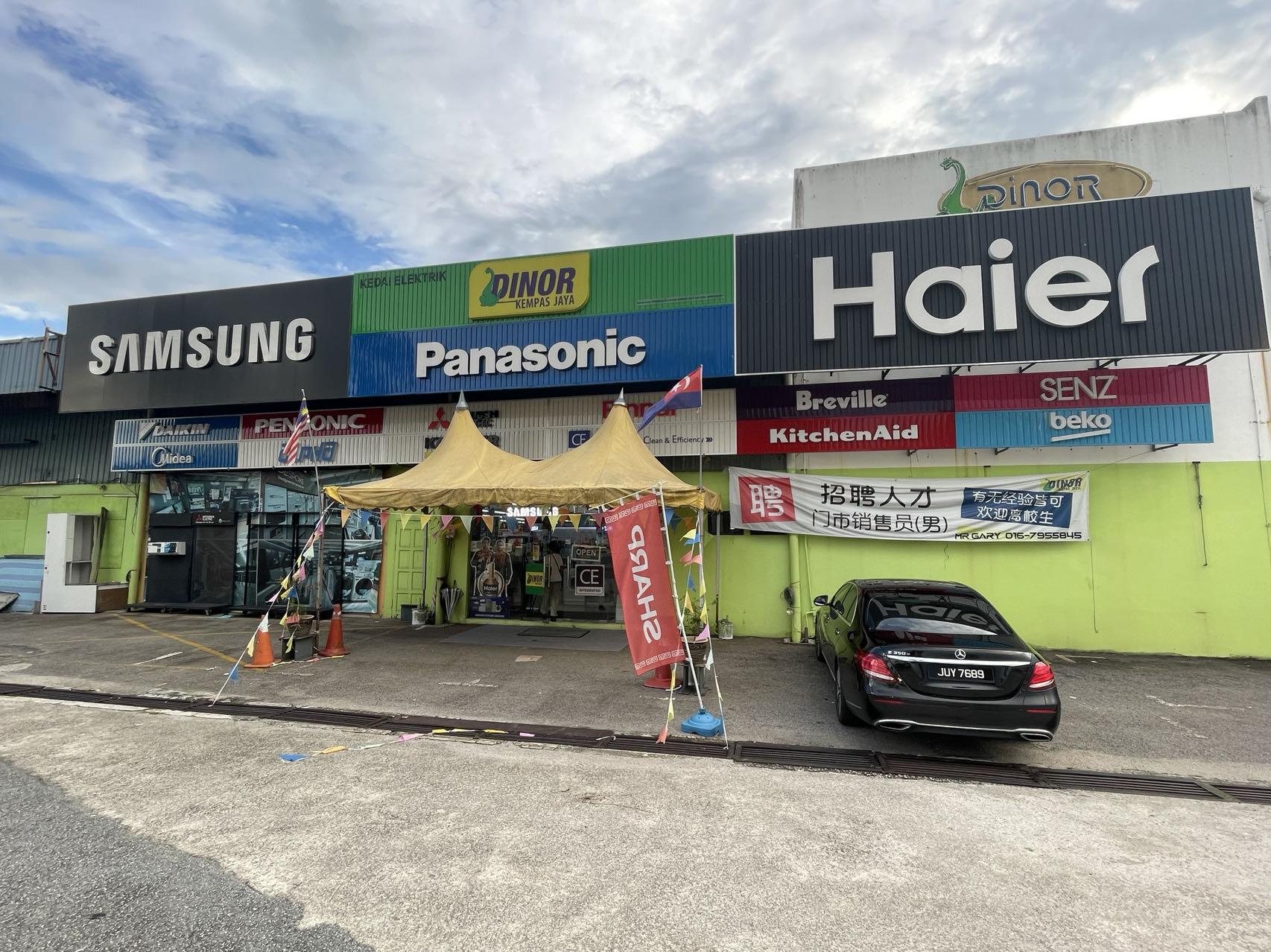This post is also available in:
简体中文 (Chinese)
Although Samsung is still the leader of the Malaysian home appliance industry, whether in terms of sales or market share, Samsung is far ahead, but some home appliance channel providers are changing their attitude towards Samsung.
“In 2024, we have to look at Samsung’s attitude, all along, the overly strong Samsung has not really paid attention to the idea of channel providers, and does not give unlikely tasks based on the actual situation. Importantly, breaking the rules of the market for the sake of expansion, this practice may attract resistance from channel providers. On January 20, a well-known home appliance channel provider in Malaysia told Frontiertec”.
Nowadays, Samsung’s behavior has aroused the disgust of more and more home appliance channel providers, mainly in several aspects:
The first is blind expansion, which has caused strong dissatisfaction from partners for many years.
Samsung is under strong pressure from Chinese brands, and although it still ranks first in the Malaysian market in terms of sales volume and market share, Samsung knows best the sources and trends of pressure. Therefore, in order to seize more and faster market share, we are constantly exploring new channels.
There is nothing wrong with market expansion, but Samsung’s approach has had a serious impact on the channel providers who have supported them for many years.
For example, the original channel service radius can cover the surrounding three kilometers, but as Samsung is eager to expand and find new channel providers, they may cover multiple channel providers of different sizes within five kilometers.
Some channel providers do not sell home appliances professionally, but in order to maintain the increase in sales, Samsung can only increase the scale of its partners.
In this regard, the original channel providers must have ideas. These channel providers have been in the development history for more than ten years and forty or fifty years, and have contributed to supporting Samsung and building today’s status in the rivers and lakes
Today, Samsung has no regard for the feelings and interests of its partners for many years, which has caused strong dissatisfaction among channel providers.
The second is the price chaos, which is the fuse of the dissatisfaction of channel providers.
The expansion is accelerating, but the market capacity is limited, coupled with the overall decline of 15-20% in Malaysia’s home appliance industry in 2023, the pressure on channel providers can be imagined.
Samsung’s expansion is tantamount to adding insult to injury for channel providers who have cooperated for many years. It is mainly manifested in: in order to sell products, new channel providers compare prices with each other.
Behind this kind of behavior is that Samsung has been forced by Chinese brands to be anxious, in order to maintain market share to take a multi-frequency, and inefficient approach, and this kind of price disorder has caused the disgust of many years of cooperative channel providers.
It can be said that Samsung’s expansion of channel providers not only does not have a good effect, but may be counterattacked by partners.
The third is to follow Chinese companies to fight a price war, but there is no clear strategy internally, and the respect for channel providers is far less than that of LG.
As South Korea’s twin stars, Malaysian home appliance distributors have completely different evaluations of Samsung and LG. The evaluation of LG is that it respects channel providers more, formulates sales tasks and marketing plans more in line with the actual situation, and does not blindly set high-cost tasks. Cooperation between each other is respect, win-win and mutual benefit.
On the contrary, Samsung, many channel providers believe that Samsung lacks respect for channel providers, and is accustomed to talking about cooperation with channel providers as a “boss” with an unmatched identity. In order to increase performance, Samsung even proposed sales tasks, which were divorced from the actual situation.
This phenomenon is not new to today, it has been around before. It’s just that the current environment is completely different from the past. With the continuous release of the competitive advantages of Chinese home appliance brands, the relationship with channel providers continues to improve, and consumers’ acceptance of Chinese brands continues to improve, which further reflects Samsung’s shortcomings.
In contrast, more channel providers have a general favorable impression of Chinese home appliance brands Haier, Hisense, Midea and South Korea’s LG.
What is particularly disgusting to channel providers is that in the face of price reductions of Chinese products, Samsung also requires channel providers to follow the trend and reduce prices, but they cannot formulate a clear strategy for Chinese brands, and only blindly and passively follow the price reductions of Chinese brands.
As everyone knows, this move has more affected the confidence of channel providers in Samsung.
The fall of giants is often instantaneous. At present, Samsung seems to have committed the disease of large enterprises – self-righteousness, blind expansion ignoring the interests of channel providers who have cooperated for many years, blindly following the trend to reduce prices, but not having a clear product price strategy, blindly increasing sales tasks, but ignoring the impact of their own expansion on channel providers.
Malaysia is a country with a population of just over 30 million, and the market is not growing as fast as expected. Of course, home appliance sales in Malaysia also have their own uniqueness, and despite the rapid development of e-commerce, unlike China, online channels will never become the dominant player in home appliance sales.
On the one hand, the Malaysian government protects offline physical stores, and on the other hand, users are accustomed to shopping malls with their families on holidays, and they are more willing to buy physical objects that can be seen and touched, which is fundamentally different from Chinese online shopping.
When interviewed by “Frontiertec” with a number of home appliance channel providers in Malaysia, they all said that in the next few years, Chinese home appliance brands will enter an era of accelerated development, and in 5-10 years, the market share of Korean brands will continue to decline, and Chinese brands will dominate.
Under this trend, Samsung’s blind expansion may accelerate the development of events. For the current Samsung, it is better to learn from LG, Haier, Hisense and Midea, how to build a good zero-supply relationship.





